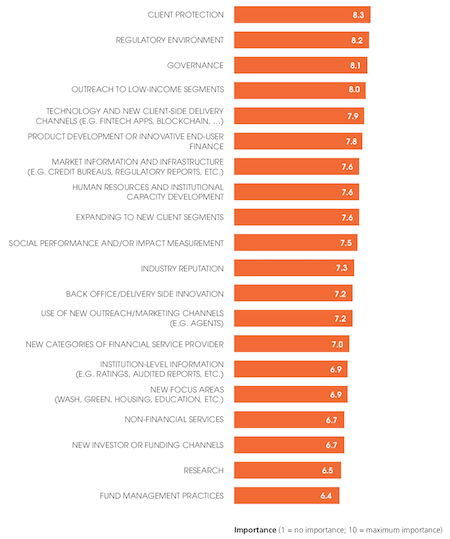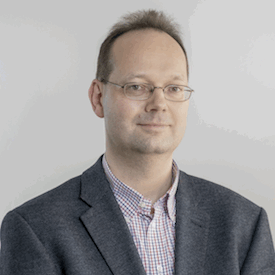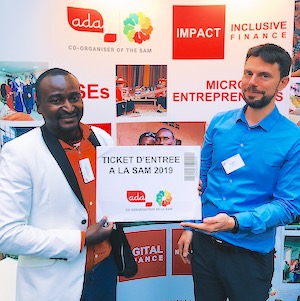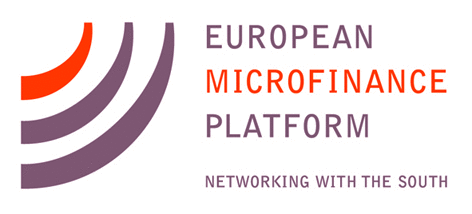Trends trends, trends, everywhere. Discussions about the trends underway in the financial inclusion sector dominate workshops and panel debates at all major conferences, as experts peer into crystal balls and extrapolate from what is currently happening in the sector to predict what will change in the years to come.
trends, trends, everywhere. Discussions about the trends underway in the financial inclusion sector dominate workshops and panel debates at all major conferences, as experts peer into crystal balls and extrapolate from what is currently happening in the sector to predict what will change in the years to come.
But too often, this sort of discussion just exists in that moment, for an audience in the room, and then vanishes into the ether. What if there was a more structured way to ask stakeholders what they see as the current and future trends, capture those responses and track them over time?
The  inaugural European Microfinance Platform (e-MFP) survey of financial inclusion trends was launched as a response to this question during the summer of 2018. The Financial Inclusion Compass 2018 – the paper that presented the findings from that survey of e-MFP members and other financial inclusion stakeholders – was released during European Microfinance Week (EMW) 2018 last November.
inaugural European Microfinance Platform (e-MFP) survey of financial inclusion trends was launched as a response to this question during the summer of 2018. The Financial Inclusion Compass 2018 – the paper that presented the findings from that survey of e-MFP members and other financial inclusion stakeholders – was released during European Microfinance Week (EMW) 2018 last November.
The Compass was conceived as a way to leverage e-MFP’s unique position as a knowledge hub within the sector, including by distilling some of the best debate from the annual EMW workshops. It gave a wide array of practitioners, investors, donors, academics and support service providers the opportunity – via a mixed-methodology online survey – to: (1) score and describe the importance of various Trends; (2) evaluate and give opinions on New Areas of Focus; and (3) provide open-ended qualitative input on sector challenges, opportunities, medium-term forecasts, financial service providers of the future, a policy-making “wish list” and longer-term hopes.
The results of the survey are

 Pausch: Climate change is the biggest issue we face as a society today. At the mitigation level, action is slowly (too slowly) being taken to reduce global emissions. However, a sensible response must include adaptation too. How do we live – and more importantly, help the most vulnerable to survive – in a world with a very different climate than we’ve been used to?
Pausch: Climate change is the biggest issue we face as a society today. At the mitigation level, action is slowly (too slowly) being taken to reduce global emissions. However, a sensible response must include adaptation too. How do we live – and more importantly, help the most vulnerable to survive – in a world with a very different climate than we’ve been used to? Francisco Cuamba, the Finance Director of Mozambique’s Microbanco Confianca (pictured at left), came to Luxembourg for European Microfinance Week in November, he was very pleased to win a free registration to the 2019 SAM, which will be held in late October in Ouagadougou, Burkina Faso. Reflecting on the 2017 SAM in Ethiopia, he said, “My participation in SAM was an extremely important opportunity to meet different organizations from all over the world to share different experiences and meet some investors to which to present my organization…. The type of investors we sign should be social investors that are not only concerned with the profitability of the investment, but also our extensive involvement in the development of
Francisco Cuamba, the Finance Director of Mozambique’s Microbanco Confianca (pictured at left), came to Luxembourg for European Microfinance Week in November, he was very pleased to win a free registration to the 2019 SAM, which will be held in late October in Ouagadougou, Burkina Faso. Reflecting on the 2017 SAM in Ethiopia, he said, “My participation in SAM was an extremely important opportunity to meet different organizations from all over the world to share different experiences and meet some investors to which to present my organization…. The type of investors we sign should be social investors that are not only concerned with the profitability of the investment, but also our extensive involvement in the development of 